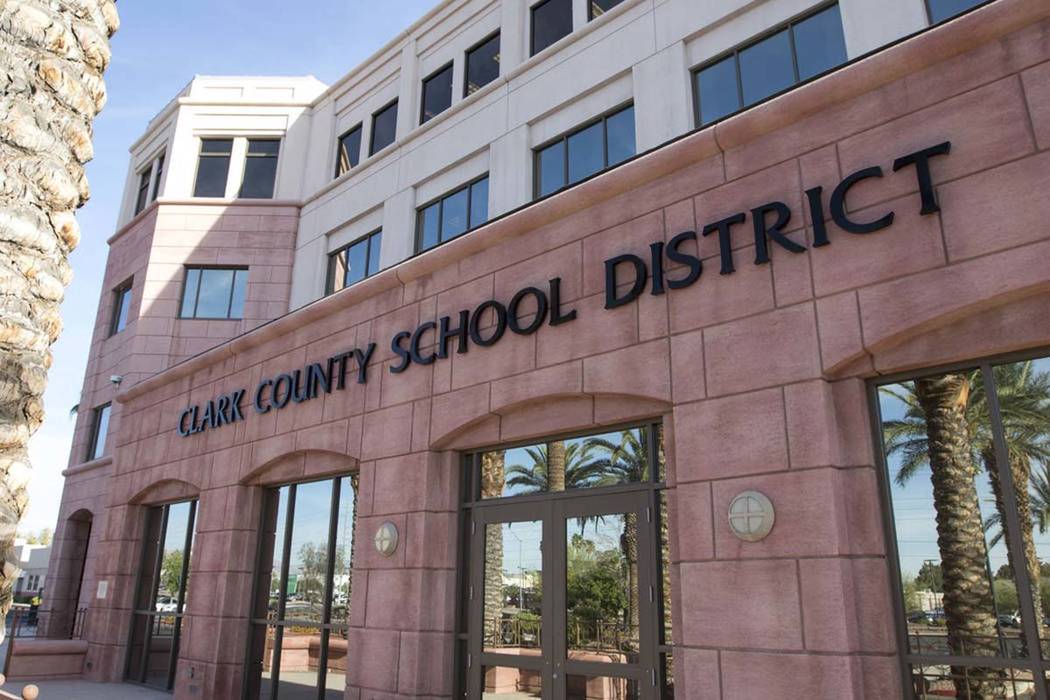Air quality penalty funds reinvested in Clark County schools
Air pollution fines were higher in the last fiscal year than they’ve been in at least a decade, but the unlikely winner is environmental education in Clark County schools.
The Clark County Department of Air Quality collected more than $1.2 million from violators during the past fiscal year, the most since at least 2006, department records show.
Now the agency, tasked with controlling air pollution, is expected to transfer almost the entire sum to the Clark County School District.
The idea is simple: Penalty fees get reinvested into schools for environmental curriculum, future air quality projects and science, technology, engineering and math education.
The initiative is not new.
Since 1971, Nevada law has required the local air pollution control board in counties where the population is 700,000 people or more (currently only Clark County) to deposit the lion’s share of penalty revenue with the school district.
“It’s good to know, from our standpoint, that these funds are being put to good, positive use in the community,” said Kevin MacDonald, spokesman for the county’s Department of Air Quality.
The agency may keep only $17,500 to defray administrative expenses and the school district is required to develop a yearly plan for how it will spend the money. Such a proposal must be approved by the air pollution control board. The county commission is scheduled to vote on the school district’s plan for fiscal year 2020 on Tuesday.
Supplemental money
The school district has used air quality penalty funds to support longstanding projects such as the Las Vegas Science and Technology Festival, where attendance continues to climb throughout its nine years, according to Sheryl Colgan, the director of the district’s K-12 Science Department.
Over the past few years, the money has supported science-related curriculum for elementary schools and teacher professional development, she said. The district also backs its partnership with the Department of Air Quality and UNLV on a pollen-monitoring project using the funds.
“It allows us to do more than we probably would be able to do otherwise,” Colgan said.
The district’s proposed budget for air quality penalty funds in fiscal year 2020 shows more than $1.4 million in available money, including leftovers from fiscal year 2019. The biggest proposed expenses include $395,000 for future energy-efficient projects such as bus fleet conversions and $350,000 for instructional supplies.
Not a trend
Since fiscal year 2006, the Department of Air Quality has transferred more than $7.3 million to the school district, records show. But this past fiscal year’s $1.2 million allotment was more than any other year in that period and only the second year in that span to reach the $1 million mark.
MacDonald said it is not, however, indicative of a trend in rule-breaking.
“It’s not as though there are more violators,” he said. “It’s just that whatever was happening with this particular or that particular source required a heavier penalty.”
The department issues permits to companies based on federal and state law and then investigates to ensure those companies are in compliance with the permits. Typical violations include uncontrolled dust, tracking dirt from construction sites onto public roads and failure to perform daily inspections.
According to a list of penalties issued by the department in fiscal year 2019, one violator stands out: Gypsum Resources, LLC, the developer proposing to build homes on Blue Diamond Hill, which was penalized $676,400.
The company was penalized for several air quality and recordkeeping violations at the mining site it operates along Highway 159, according to two air pollution control hearing documents.
The amount was an obvious outlier on a list of where most companies were fined between $2,000 to $5,000. The company also had the second-largest penalty of last fiscal year – $75,200. Swinerton Builders, a commercial construction company, had the next largest penalty at $46,000.
A spokesman for Gypsum Resources did not provide a comment Friday.
Contact Shea Johnson at sjohnson@reviewjournal.com or 702-383-0272. Follow @Shea_LVRJ on Twitter.
Notices of Violations and A... by Las Vegas Review-Journal on Scribd


















